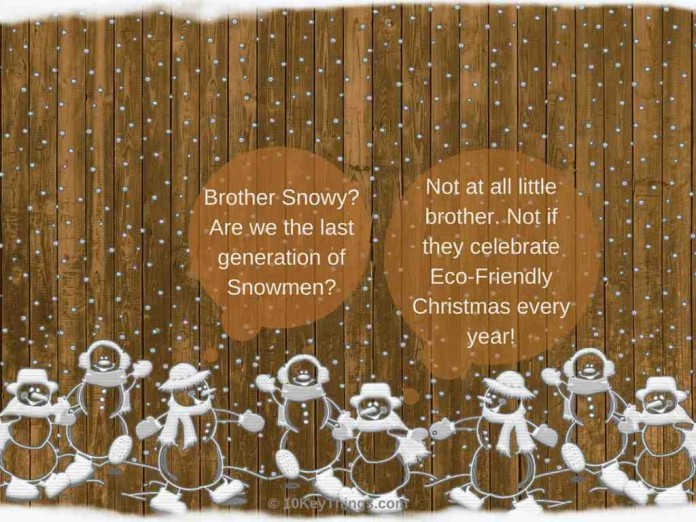It’s almost that time of the year when people are into Thanksgiving mode, slowing down their pace of work and trying to curl up in their beds for an extra hour. Merry-making and preparation for Christmas are the only things that are on fast track.
We immerse ourselves in happiness, goodness sets in, and for a second we don’t think our next door neighbors are that bad. And while all of that is awesome, we sometimes forget the impact we leave on the environment in our zest for Christmas.
Most countries spend with abandon, come Christmas. Just to put things in context, Australia spent over $16.2 billion at Christmas last year (FYI, that’s about $993 for each adult! Gifts are the biggest expense, with each adult spending an average $475 on presents and a combined $554 million on extra food and drink.)
 1. In Britain alone, 1.7 billion cards are estimated to do the rounds. This was equivalent to chopping off 200,000 poor trees.
1. In Britain alone, 1.7 billion cards are estimated to do the rounds. This was equivalent to chopping off 200,000 poor trees.
Figures also show that nearly 10 per cent of every festive meal is thrown away, which equates to an incredible £ 64 million of wasted food. That’s about 263,000 turkeys, 740,000 Christmas puddings and 17.2 million Brussels sprouts.
Did I mention this was in Britain alone?!
2. We all love our Christmas presents put under the tree, especially when it’s time to tear the lovely wrapping paper apart. But did you know that one of the biggest sources of waste each Christmas is the same wrapping paper, with more than 8,000 tonnes being used each year – the equivalent of approximately 50,000 trees.
3. The Christmas tree: The plastic trees that come every year from China and Taiwan are made of PVC (PolyVinyl Chloride) materials. These trees have a lifetime of 6 years and are non-biodegradable. When discarded, they can cover the whole surface of earth quite a number of times.
4. Lights: The lights that you keep turned on for 12 days produces enough of carbon dioxide to inflate a dozen balloons. In Britain alone, the lighting over the festive period consumed 207 Kwh, the equivalent of 22.8 days of the average British household’s electricity consumption.
5. Gifts: Spending peaks during Christmas, as much as a $1000 per person, and a huge chunk of it goes to gifts. Unfortunately, most of those gifts end up in the back of the wardrobe, never to be seen again.
1. Send e-cards instead of paper cards, and make a Christmas shopping list, estimating the food you’d need according to the guests you’re expecting, which might help reduce the waste.
2. Why not use reusable gift boxes for those presents, or recyclable paper, not tin foil sheets?
3. Make use of the renewable Christmas trees that are available in pots. These trees are grown in farmlands and can be a source of income for many. Later when you wish to have it discarded you can contact your local authorities that shred Christmas trees.
Or, when making your selection, be on the lookout for organic/seasonal tree farms or “live trees,” which still have the roots attached and can be planted after the season is over.
4. Use energy efficient lights and power from solar if possible. These energy efficient LED Christmas lights are suitable for both indoor and outdoor display, and are available to buy online throughout Europe and America at various e-commerce websites and can cost anywhere between $18 to $80 depending upon the type of display.
5. Donate what you don’t need, so that they go to good use. Donate your old or unwanted clothes to your local charity shop – the majority of their revenue comes from goods donated so donations are vital.
6. Also, while buying toys, keep in mind you try the wooden ones, instead of plastic ones. Plastic is simply not degradable. And the mercury and cadmium of the batteries, once discarded, cause heavy metal pollution, choking the soil badly.
I am sure we are capable of a lot of good, with a little bit of awareness and very little efforts. It is just our wise decision to discard all that is unsustainable and accept the recyclable, that make us wise – the true Magi.
Sources:https://www.commbank.com.au/; http://www.independent.co.uk






